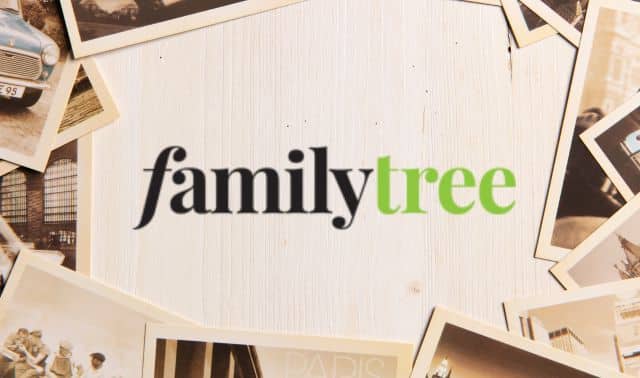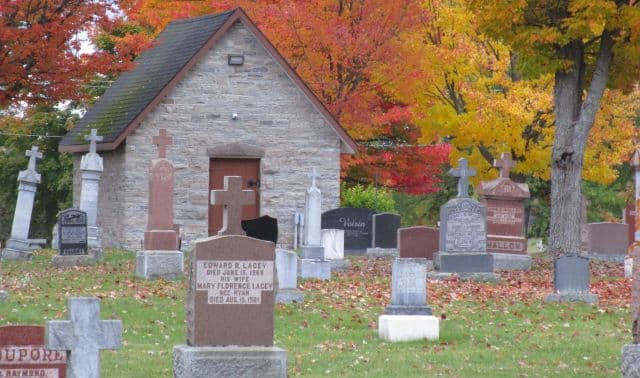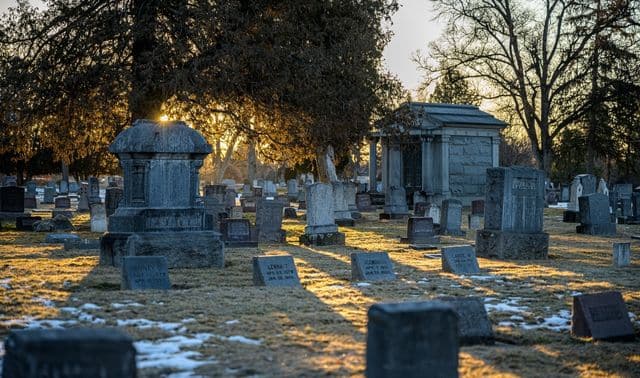Sign up for the Family Tree Newsletter! Plus, you’ll receive our 10 Essential Genealogy Research Forms PDF as a special thank you.
Get Your Free Genealogy Forms
"*" indicates required fields
This article is sponsored by RememberingALife.com.
Our concepts of life and death have changed. From the beginning, we knew the pandemic would be different from anything we had faced in years. Today, close to 1 million Americans have died from Covid-19; globally, the death toll stands at 6 million.
But it isn’t just the number of deaths that’s staggering. It’s also the lack of closure. There was no chance to say a respectful and loving goodbye. Being unable to hold a vigil or attend a funeral has caused an upsurge of “disenfranchised grief,” where we ruminate on a loved one’s death that didn’t receive the acknowledgment it would have at a different time. This ethos of loneliness and confusion is one reason RememberingALife.com was created.
Remembering A Life acknowledges not just that life comes to an end but also that we can celebrate it even when we say goodbye. Here’s a look at RememberingALife.com and how it’s helping families honor their loved ones, host memorial services, and plan for their own end-of-life rituals in a time when our approach to grief is changing.
Death During Covid
In 2020, the National Funeral Directors Association (NFDA) recognized that we as a country needed a way to give our grief a voice, to understand that our profound pain and loneliness are normal, and to learn how to cope and take care of ourselves after the loss of a loved one. As a result, the organization developed RememberingALife.com to provide information on everything from experiencing a sudden death and dealing with immense grief to planning a meaningful tribute to those who have died.
“One disadvantage during the pandemic has been that in-person funerals weren’t allowed,” explains Gail Marquardt, Vice President of Consumer Engagement for NFDA. “But people needed to hug, to meet closely together, and talk about how important this person was.”
However, Marquardt notes that our new way of grieving may have some benefit: “Now, we are talking about death, and that’s somewhat of the silver lining, from my perspective. We understand the value of a life well-lived. It’s a lot more present in our minds than it was five years ago. We’ve all lived through such tragedy, and we realize how fragile, and important life really is.”
Responding to Grief
We experience grief in many ways: shock, disbelief, despair, to name a few. Since the pandemic, we’ve learned that grief is also a complex physical response. Our bodies suffer, and we undergo an onslaught of illnesses. At times, we lose control.
According to Dr. Sidney Zisook, a professor of Psychiatry at the University of California, San Diego and one of the foremost researchers on grief, we may experience the following sensations when a death occurs:
- Separation distress
- Traumatic distress
- Guilt, remorse, and regrets
- Social withdrawal
Isolation has influenced our ability to grieve, and having to forgo the traditional funeral has complicated the natural grief journey.
Marquardt echoes that sentiment. “This has been a difficult time to lose someone,” she explains. “And the isolation of being home alone without access to friends and family has been distressing; people are finding it hard to move forward.”
Remembering a Life offers a wealth of grief support resources, including how to take time to honor our losses and find ways to carry a loved one’s legacy forward. You can also find a guide on how to attend to your emotional and physical needs even as you mourn the loss of a loved one.
Honoring a Life
Honoring someone’s life is important regardless of when they died. A memorial or life service does not have to be a sad occasion either. It can be reflective, hopeful, and even joyful. Honoring a life can be done at any time; the main goal is to gather people together and share stories. These memories can be powerful and healing. Research shows that letting people talk about their grief allows them to contemplate the heartache in a more positive way.
Marquardt remembers when a friend lost someone dear. “Since I had also lost several loved ones, he asked my advice for getting through it, and I told him to never stop talking about them,” Marquardt says. “Never stop sharing their stories because these memories are a beautiful tribute to someone you love.”
If you want to honor your loved one with reverence, joy, and love but aren’t sure where to begin, Remembering a Life offers clear, compassionate guides on how to preserve those sweet memories and celebrate the person you remember fondly just as they were.
Modern Funerals
Funeral homes began streaming services a couple of years ago at the height of the pandemic. Since then, the virtual funeral has become a welcomed option. It allows us to attend a live-streamed funeral service from home, still sharing the loss with others as we mourn together. A virtual funeral can also decrease long-distance travel for family and friends scattered across the country, allowing loved ones to participate wherever they feel most comfortable.
In an effort to address the prevalence of virtual funeral services, and to quell any confusion or reservations surrounding non-traditional funerals, Remember a Life created a comprehensive guide on how to plan funerals during the COVID-19 pandemic. There are even tips on what you can do if you are forced to delay or forgo a funeral altogether.
But Marquardt believes we’ll see a resurgence of in-person funerals. “I don’t think the traditional service with the viewing and casket is going away,” she says. “There is tremendous value to viewing the body of someone we love, a closure that is more prevalent now. People talk more when they’re in person, and we’re realizing the benefit of that sharing.”
In fact, the need to adjust how we handle death and mourning has inspired many funeral directors to educate people about services and burial options. Some hold community events that cover such topics as writing a eulogy, grasping the difference between green and natural burials, and learning how to incorporate a distinctive smell (think Dad’s aftershave) into a reception.
Similarly, others host “Lunch and Learn” sessions that provide an opportunity to visit the funeral home, eat lunch, and start a conversation about how you want to be remembered. By introducing the topic before the need arises, you can rest assured knowing that your loved ones know exactly what matters to you, what your story is, and how you want your story to be preserved. For help guiding these sessions, Remembering a Life offers a “Have the Talk of a Lifetime” checklist and workbook to aid in discussing end-of-life planning.
If thinking too far ahead into the future makes you nervous, there are other ways to acknowledge the weight of death and mourning. “Life Book Clubs” allow participants to read selected books that deal with loss and grief and then discuss what resonated with them (or didn’t). If you are interested in attending a book club and can’t find any in your area, you can start your own. Remembering a Life has tips for getting started.
Finally, if you aren’t quite looking to sit down and chat at the moment and just want something to listen to on the go, Remembering a Life hosts a podcast on the second Wednesday of each month that provides thoughtful end-of-life discussions with experts in the field. The most popular podcast dealt with four funeral directors discussing their experiences following the September 11, 2001, attacks.
“It’s widely known that funeral directors stay in the background,” Marquardt said. “They don’t want to talk about what they do. But they’re very generous, and these four stories resonated with people. Everyone can relate to 9/11 and for a lot of us, hearing this podcast will take us back to that time, where we were, and how we were affected.”
Preplanning Your Way
An estimated 65 million Baby Boomers plan their parents’ funerals. While Mom and Dad might prefer a traditional service dictated by culture and religion, many Boomers are considering alternatives that celebrate their lives instead of their deaths.
Preplanning offers control. For example, you might look to various body interment options. You might also consider cremation, resomation (natural water cremation), natural or green burial, promession (freeze-drying to reduce the body to a dry powder), reef balls, or space burial. You could skip those steps altogether and donate your body to medical or forensic science. There’s even human composting, now legal in three states.
Some Boomers are also creating funeral budgets to eliminate the financial burden on their families. You can do this by establishing a prepayment plan with the funeral home, taking out burial insurance, or contributing to a payable-on-death saving account at a local bank.
Planning also lets you decide how you want to be remembered. If your favorite pastime is fishing, why not request the reception area be decorated to reflect that? Have photos of your “big” catches hung around the room, and ask that loved ones share their favorite “the one that got away” story while enjoying a fried fish dinner at the reception.
If you’re a big Dire Straits (or Stones, or Kenny Rogers) fan, request that music be played during the visitation or reception. Select a song you feel epitomizes your life and have it played for a special dance. You can check out “Planning in Advance” for more ideas.
Having the “Talk of a Lifetime”
“A terminal illness can feel very out of control, so being able to plan how people will gather and say goodbye is very powerful,” Marquardt explains. “Having these conversations can really have an impact on how meaningful someone’s funeral is.”
Marquardt also emphasizes the importance of initiating conversations with loved ones about your wishes and considering even the small details. For example, you might want to think about the answers to these questions:
- What does my family want?
- What does my family need?
- What’s important to them?
But launching that discussion can be tough. Not everyone will feel comfortable planning for their death. Visual prompts like photo albums or souvenir scrapbooks can help spark a natural dialogue. Remembering a Life also has a preplanning checklist and 50 “Talk of a Lifetime” cards to guide that discussion.
“Thinking in advance will help when you sit down to make those decisions,” Marquardt says.
Tell Their Story
As one line from the musical Carousel reminds us: “As long as there’s one person on earth who remembers you; it isn’t over.”
Bodies may eventually fail: final breaths fill silence, grips loosen, the last heartbeats resound. But even after the physical body stops working, those we hold dear live on in our memories. We hear it in the stories we tell each other, the laughs we share, the tears we shed together.
But sharing fond memories doesn’t just feel good in a cathartic sense; it may even be essential.
Marquardt reminds us: “Given the nature of family and our connections, we’re living our own genealogy history. We need to share our stories because we are the ones who people will be researching in 50 years.”
She also remarks that genealogy, funerals, and grief intersect in an intriguing way: they all “share the concept of storytelling.” When we venture into our ancestors’ past, we don’t just see the cold, hard dates of events that have come and gone. We see people who overcame challenges and who were dedicated to charting their own legacy. Moved by this determination, we might thread together a sweeping story or a collection of smaller tales to tell ourselves and those close to us. This tradition endures well into the present and the future. When someone close to us dies, we craft stories that speak to who they really were, one memory at a time.
But how do we go about sharing such stories so that they last? One wonderful way to share someone’s story is to create a Legacy Film about your loved one. Remembering a Life has an online guide available to help. Of course, maybe you aren’t ready to see your loved one’s story unfold before you on a screen. You just want to get the words out and express how you feel. That’s okay, too. You can also find a guide to healing writing.
Get Started with Remembering a Life
What’s important to remember is that grief is normal and also complex. The good news is that Remembering a Life provides resources that can help you approach grief and death in ways that make sense to you and your family while still preserving the memories of your loved ones.
As Marquardt put it: “How we say goodbye is a rich part of our genealogy. As we grieve, we help keep a loved one’s story alive for the next generation, and that’s a very important part of family history.” Saying goodbye isn’t easy. It may even hurt. But it connects us to who we are, both as individuals and as families. Start browsing to find the tools you need to power through your grief journey with courage, hope, and peace.





